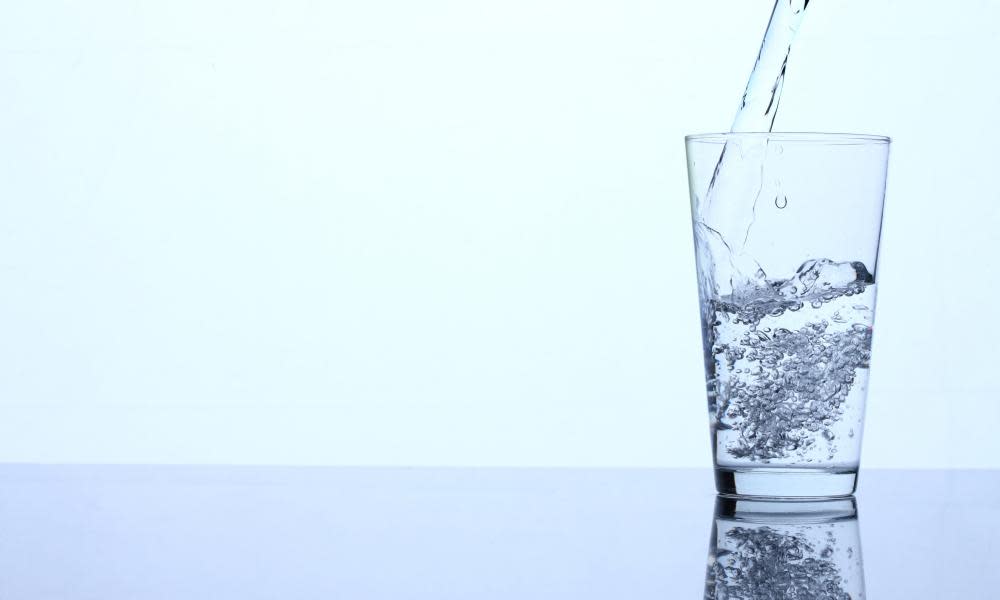Top drop: NSW’s Richmond valley takes out best tap water in Australia title

Council plant faced ‘a lot of challenges’ to beat five other state entrants on qualities including clarity, smell, taste and ‘feeling in the mouth’
A competition to find Australia’s finest drop of water has announced the Richmond valley council water plant in NSW as its winner.
The 2021 Best Tasting Tap Water competition, hosted by the Water Industry Operators Association of Australia (WIOA), pitted water authority state winners from metropolitan and regional areas around the country against each other.
Taking home the national title, the Richmond Valley Council Casino Water Treatment Plant will go on to represent Australia at the 32nd annual Berkeley Springs International Water Tasting Competition, held in West Virginia, United States.
David Timms, representative of the Richmond valley council plant, said: “I’m a little bit shocked to be honest.”
“We were absolutely rapt just to have won the NSW competition, let alone to win the Australian one.”
Judged on clarity, smell, taste and “feeling in the mouth”, Craig Mathisen, WIOA chief operations officer, explained each water sample is judged on particular criteria.
“We make sure it is translucent, then we smell the sample, because odour is important,” he said.
“But ultimately, it is a test of one’s palate.”
Judging today’s event, which was livestreamed on Facebook from Risdon Brook dam in Hobart, were TasWater CEO Mike Brewster, Derwent Estuary Program CEO Ursula Taylor, and guest judge George Bailey, who is the national chairman of selectors for the Australian Men’s International Cricket Team.
“It is like tasting wines,” Taylor said.
Bailey shared that he could not pick much difference between the six samples’ clarity or colour, suspecting the glasses were too clean. Brewster added that the difference between taste is also “very fine”.
The judges’ rankings of each sample were then aggregated, and the winner announced.
Mathisen explained that different treatment processes and sources of water can vary taste, “and some facilities have unique processes”.
Victoria’s Rossarden water, international winner of 2020, for example, comes from a “stream off the back of a mountain environment”. In Marian, Queensland, a newer site established in 2014 uses “clarification filtration and chlorine disinfection”. Their water won silver at the 2019 international competition.
On the other side of the country, Western Australia water facilities include a “cocktail mix” of sources and technologies, including “groundwater and desalination”. And in South Australia, water from the Murray River “gets pushed” across the state, and “will sometimes travel 600km before getting to its destination”.
“There’s a whole range of different processes,” Mathisen said. “We are the driest country, with some of the greatest water, but a lot of people don’t give the water industry much thought.”
Related: ‘I’m doing this out of my heart’: the fight for clean water in one remote WA Indigenous town
The national competition “is about raising awareness of the industry, and the work people do, that often goes unnoticed,” he said.
The line up of state finalists included SA Water’s Anstey Hill Water Treatment Plant; WA Water Corporation’s Wyndham Water Treatment Plant; Westernport Water’s Ian Bartlett Water Purification Plant in Victoria; Tasmania’s TasWater Rocky Creek Water Treatment Plant and Queensland’s Mackay regional council Marian Water Treatment Plant.
Timms, of the winning Richmond valley council plant, said that the crew “out at the water treatment plants [have had] a lot of challenges over the last two years. But we’ve got a great bunch out there who have persevered.”
Mathisen said workers in the industry are “working in public health, removing contaminants, making sure we have safe drinking water, ensuring sewage is distributed back to the environment in a kind way”.
“Australia is a hard country,” he said. “They’re doing their job all of the time. Battling through floods and fires and the millennium drought.”
“And at the end of the day, we turn on the tap and expect water to be there.”

 Yahoo Movies
Yahoo Movies 
